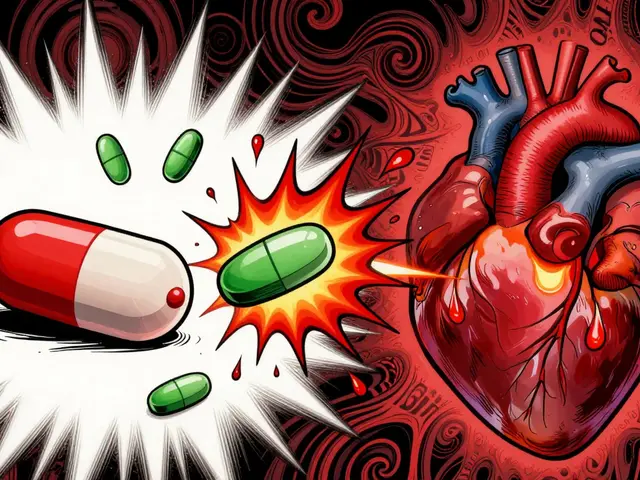
Thyroid Function: What It Does and Why It Matters
If you’ve ever felt unusually tired, gained weight for no reason, or noticed a racing heart, your thyroid could be the culprit. This tiny, butterfly‑shaped gland sits at the base of your neck and quietly runs the thermostat for your entire body.
How the Thyroid Controls Your Body
The thyroid makes two hormones – T4 (thyroxine) and T3 (triiodothyronine). They travel through the bloodstream and tell every cell how fast to work. Think of them as the accelerator and brake for your metabolism. When the hormones are in the right range, you feel steady, your temperature stays normal, and your heart beats at a healthy pace.
When the gland produces too little hormone, you get hypothyroidism. Common signs are fatigue, cold intolerance, constipation, and dry skin. Too much hormone leads to hyperthyroidism, which shows up as nervousness, weight loss, heat intolerance, and a fast‑pounding heart. Both conditions can affect mood, sleep, and even cholesterol levels.
Most thyroid problems start with an autoimmune reaction. In Hashimoto’s disease, the immune system attacks the gland and slows it down. In Graves’ disease, the immune system pushes the thyroid into overdrive. Knowing which side of the swing you’re on helps doctors pick the right treatment.
Keeping Your Thyroid in Balance
Testing is quick: a simple blood draw checks TSH (thyroid‑stimulating hormone) and often T4/T3. If your TSH is high, the pituitary is asking the thyroid to work harder – a sign of hypothyroidism. Low TSH usually means the thyroid is overproducing hormones.
Diet and lifestyle can tip the scales too. Iodine is essential for hormone production, so foods like seaweed, dairy, and iodised salt matter. Too much goitrogenic food – raw cabbage, broccoli, soy – can interfere if you already have a low‑function thyroid, but cooking usually reduces the effect.
Regular exercise helps keep metabolism humming. Even a daily brisk walk can improve how your cells use thyroid hormones. Stress management matters because cortisol (the stress hormone) can blunt thyroid activity. Try simple breathing exercises or short breaks during the day.
If medication is needed, levothyroxine is the standard for low hormone levels. It’s taken on an empty stomach, usually first thing in the morning, to avoid food interference. For an overactive thyroid, doctors may prescribe anti‑thyroid meds, radioactive iodine, or occasionally surgery.
Stay on top of your numbers. Blood tests every six to twelve months are typical once you’re on medication, but if symptoms change, ask your doctor to check sooner. Keeping a symptom diary can help pinpoint what works and what doesn’t.
Bottom line: your thyroid is a small organ with a big job. Understanding the signs, getting the right tests, and making a few lifestyle tweaks can keep it running smoothly. When in doubt, talk to your GP or pharmacist – they can guide you to the right test and an appropriate treatment plan.
-
6 Sep






